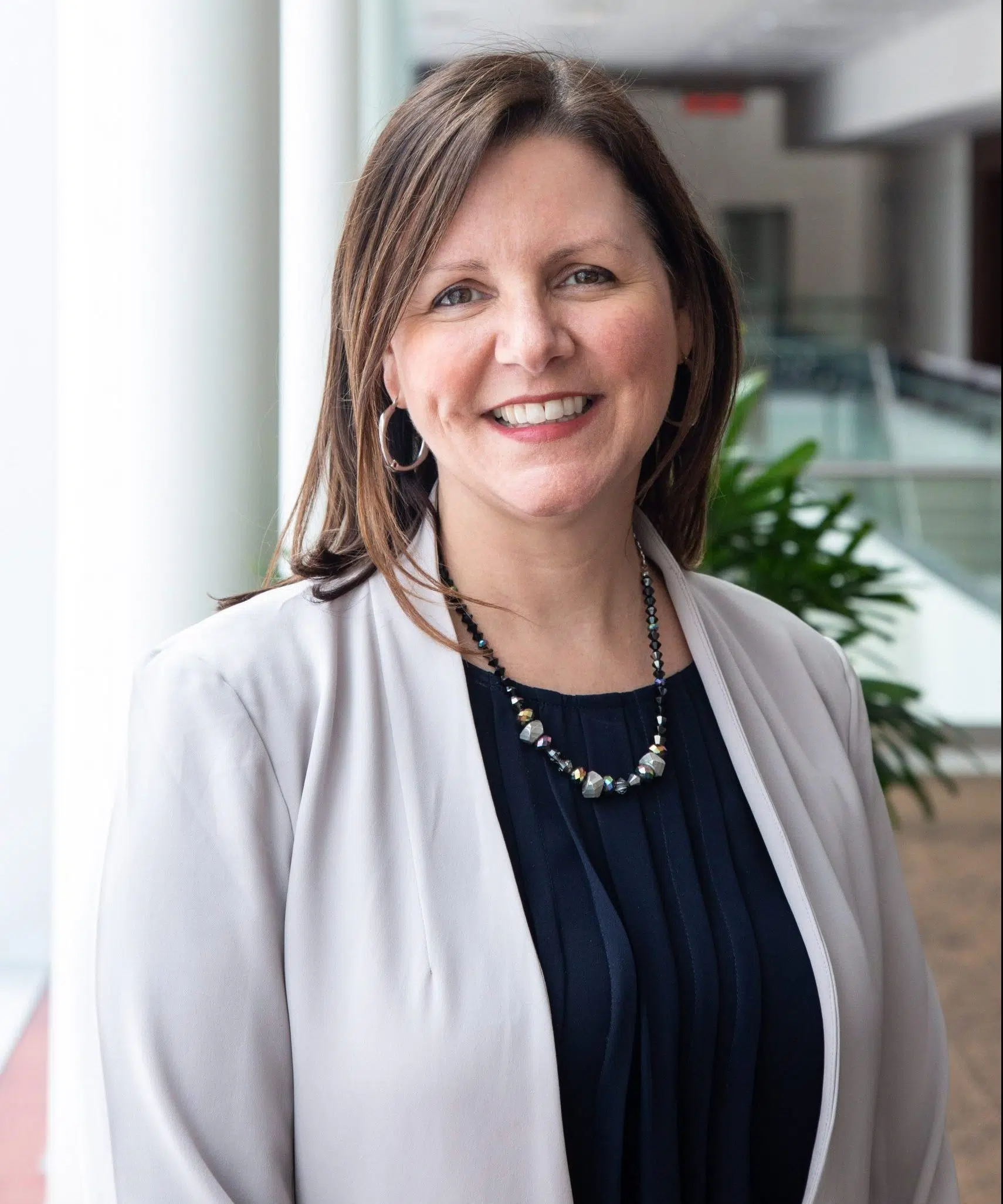
Dr. Jennifer Russell is the chief medical officer of health for New Brunswick. (Government of New Brunswick/Submitted)
The constantly evolving landscape of the COVID-19 pandemic has left many communities confused and concerned.
Many of the decisions made are not accompanied by reasoning, fueling a sense of distrust.
New Brunswick’s Chief Medical Officer of Health, Dr. Jennifer Russell, used a live stream to provide some clarity on the issues that have been crowding the minds of New Brunswickers.
According to Bruce Mcfarlane, the Director of Communications for the Department of Health, many of the questions submitted were similar and involved the vaccine rollout or the COVID-19 variants.
Russell started by addressing those who are immunocompromised and worried that the four-month period between vaccine doses will cause greater risks.
“The approach we’re now taking helps to protect those individuals from their vaccination even if it’s just partial, and that’s by vaccinating those around them,” she said, adding that the current approach will help decrease the spread in the community.
She is optimistic that many New Brunswickers, regardless of their health status, will receive their second dose ahead of the four months.
“There will be a certain amount of the population that definitely will get it before the four months,” said Russell. “We’re really confident that every New Brunswicker will be offered their first dose by the end of June, and we hope that everyone will have their second dose before the fall.”
The Chief Medical Health Officer of Health confirmed that she expects the vaccination process will ramp up with large shipments set to arrive in late May and early June.
Canada’s vaccine rollout hit a snag when India’s surge of COVID-19 cases affected their ability to ship out doses of the AstraZeneca vaccine.
As a result, those who received a shot of the AstraZeneca vaccine may be required to receive a second dose of another vaccine. However, the science of which shot to get remains unproven.
“Which type of second dose people will be offered is going to be determined on evidence and research. We are waiting on some data that’s coming out of the U.K.,” said Russell.
India is experiencing what has been labelled a “double mutant” variant that Dr. Russell believes is “more concerning” than any other variant the province has encountered.
“Variants of concern all meet the same criteria of being more aggressive than previous strains, causing more severe symptoms requiring more people to be hospitalized, requiring ICU admissions and ventilation and causing more death.”
Thus far, New Brunswick has found cases of the U.K. variant and the South African variant.
With the virus constantly adapting, concerns have grown over the effectiveness of vaccines and what protection they will provide. Even those who have been fully vaccinated can contract the virus, but Russell says vaccine progressions will help limit the spread.
“You are shedding fewer virus particles, so hopefully that will lessen the transmission,” she said.
Russell referenced studies in Israel that indicate vaccinated individuals that contract COVID-19 are far less contagious.
She was firm on the stance that we must remain vigilant and continue to follow measures such as wearing masks and physically distancing to reach the end of the pandemic.






